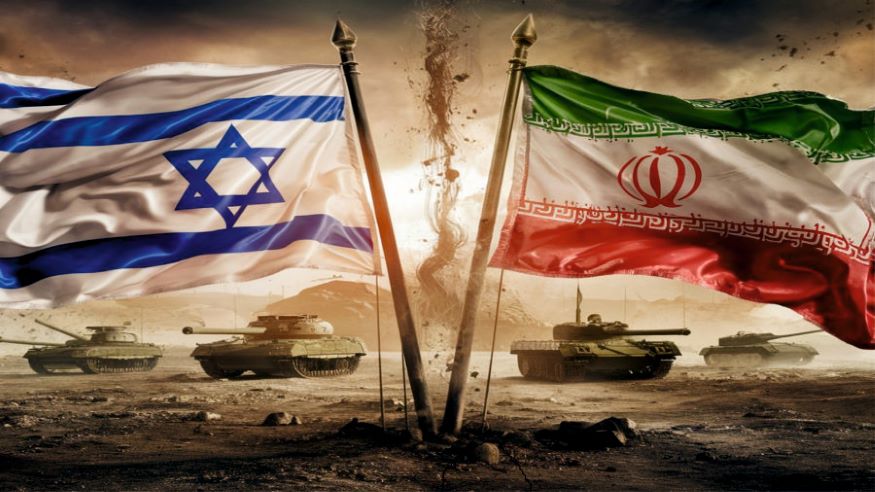As tensions rise between Israel and Iran, the threat of military conflict becomes increasingly palpable.
JUST A WEEK before the first anniversary of Hamas’s attack on Israel, the country was rattled by a barrage of missiles fired by Iran. This was in retaliation for the Israeli assassination of Hassan Nasrallah, the head of the Lebanese armed group Hezbollah and a key ally of Tehran. Israel vowed a brutal response against Iran, but even two weeks after the Iranian attack, there are no signs of any Israeli retaliation. The world watches apprehensively, wondering what is holding Israel back from carrying out its threat.
After Iran’s October 1 missile attack, Israel “promised” a retaliatory strike, asserting that it would be “deadly, painful, and surprising” for the Islamic Republic of Iran. However, despite the rhetoric, Israel has yet to act, raising questions about whether it has the capability or resolve to engage in such an act of war against a powerful nation like Iran, which is suspected of possessing a nuclear arsenal.

Perhaps the Israelis are still deliberating over the “perfect” method of attack on Iran, as they want the strike to be “extremely disastrous” to send a global message. Or maybe they are being restrained by their biggest ally and patron, the U.S. Additionally, Israel faces a major challenge: Iran’s strong air defense system, which acts as an “invisible wall.”
The United States, Israel’s staunch ally, has expressed concern, while Arab nations—many of whom have good relations with Israel—have openly stated they will not allow their air or land to be used to launch an attack on Iran. On October 9, President Joe Biden told reporters that the U.S. would not support Israeli strikes on Iran’s nuclear sites.
As of now, Israel is already engaged in a bloody war on multiple fronts in the Middle East, including Gaza, Yemen, Syria, and Lebanon. Its allies are pulling back, concerned that an Israel-Iran conflict could escalate into a full-scale regional war and possibly trigger World War III.
To retaliate against Iran, Israel has two options: attack Iran’s nuclear plants or its oil installations. If Israel does retaliate, Iran’s military bases, air defense systems, and missile launch capabilities would be its primary targets. However, even if Israeli fighter jets manage to penetrate Iranian airspace and temporarily disable its missile systems, the greatest threat—Iran’s nuclear capabilities—would remain intact.
Iran has fortified its key military and nuclear sites with a strong air defense system. This includes modern systems like the Russian-made S-300, SA-22, and indigenous Khordad 15 and Bavar 373 systems. These make Iran’s airspace extremely secure and pose a significant challenge for Israel.

The most important component of Iran’s defense is the S-300 system, received from Russia, which can target fighter jets from up to 160 km away and fire dozens of missiles at multiple targets simultaneously at five times the speed of sound. Israel’s stealth F-35 fighter jets might evade Iran’s radar, but carrying heavier bombs alters their structure, making them more detectable.
Despite U.S. opposition, Israel might still strike Iran’s nuclear facilities. However, experts believe over 90 percent of these facilities are buried deep underground, making it almost impossible for an airstrike to penetrate them, even with bunker-buster bombs. Another challenge for Israel is the distance: Iran’s primary nuclear sites are more than 1,600 km away, requiring Israeli planes to fly through the airspace of several countries, most of which have refused cooperation with Israel on this issue.
Fuel is also a concern. According to a U.S. Congressional Research Service report, a round trip to Iran’s nuclear targets would deplete Israel’s aerial refueling resources, leaving no room for error. A strike group would need around 100 aircraft, almost one-third of Israel’s combat-ready planes.
Destroying Iran’s two main nuclear enrichment facilities, Natanz and Fordow, would require weapons capable of penetrating deep underground. The only conventional weapon thought capable of doing this is the GBU-57A/B Massive Ordnance Penetrator, which would require a joint Israeli-U.S. strike. The question remains: would the U.S. be willing to involve itself directly in such an attack, given the serious geopolitical consequences?
Also Read: Human Dimension and Greed Angle of the ME Conflict
Given these logistical challenges, Israel’s most viable option to save face might be to launch covert operations targeting Iran’s top leadership, similar to past assassinations of Qasem Soleimani and Hassan Nasrallah. ![]()
Disclaimer : PunjabTodayNews.com and other platforms of the Punjab Today group strive to include views and opinions from across the entire spectrum, but by no means do we agree with everything we publish. Our efforts and editorial choices consistently underscore our authors’ right to the freedom of speech. However, it should be clear to all readers that individual authors are responsible for the information, ideas or opinions in their articles, and very often, these do not reflect the views of PunjabTodayNews.com or other platforms of the group. Punjab Today does not assume any responsibility or liability for the views of authors whose work appears here.
Punjab Today believes in serious, engaging, narrative journalism at a time when mainstream media houses seem to have given up on long-form writing and news television has blurred or altogether erased the lines between news and slapstick entertainment. We at Punjab Today believe that readers such as yourself appreciate cerebral journalism, and would like you to hold us against the best international industry standards. Brickbats are welcome even more than bouquets, though an occasional pat on the back is always encouraging. Good journalism can be a lifeline in these uncertain times worldwide. You can support us in myriad ways. To begin with, by spreading word about us and forwarding this reportage. Stay engaged.
— Team PT

